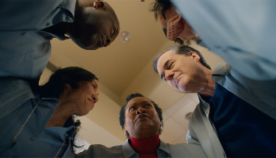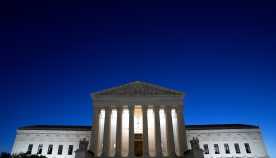About Us
The Court may soon have the opportunity to address a relatively recent, lop-sided circuit split with important consequences for class actions. Courts routinely approve service awards (also known as incentive awards or case contribution awards) for lead plaintiffs to compensate them for their time and resources spent and reputational risk incurred. In Johnson v. NPAS Solutions, LLC, 975 F.3d 1244 (11th Cir. 2020), however, the Eleventh Circuit held that a pair of Supreme Court precedents from the 1880s prohibit service awards. On August 3, 2022, the court denied a petition for rehearing en banc of that decision, and a petition for certiorari may be forthcoming. 43 F.4th 1138 (11th Cir. 2022).


You have the power to change the lives of seniors in poverty
1 in 3 older adults struggle to meet their basic needs. Your gift can help seniors secure good jobs, get the benefits they've earned, and stay connected to their communities.
In Johnson, the lead plaintiff sued NPAS Solutions, LLC, alleging that it violated the Telephone Consumer Protection Act, 47 U.S.C. § 227, by using an automatic telephone-dialing system to call him and other class members without their consent. 975 F.3d at 1249. The district court approved a $1,432,000 million settlement for the class, which included a $6,000 service award to the lead plaintiff. Id. at 1249-51.
On appeal, a divided panel reversed the district court’s approval of the service award, concluding that two Supreme Court cases prohibited it. The majority relied on Trustees v. Greenough, 105 U.S. 527 (1882), in which the Supreme Court held that a plaintiff-creditor who sued to recover on behalf of himself and other creditors could not receive an allowance for his “personal services and private expenses.” Id. at 1256-57 (citing 105 U.S. 527, 537 (1882)). The majority also read Central Railroad & Banking Co. v. Pettus, 113 U.S. 116 (1885), to confirm this prohibition. Johnson, 975 F.3d at 1250. Reasoning that the modern-day service award functions as a “salary” (compensation for the lead plaintiff’s time) and a “bounty” (incentivizing named plaintiffs to lead class actions), the majority held that Greenough and Pettus disallow it. Id. at 1257-59.
The partly concurring and dissenting opinion noted that courts have granted service awards for decades; that the Third, Fourth, Sixth, Seventh, Eighth, Ninth and D.C. Circuits have all approved of service awards; and that even prior Eleventh Circuit precedent has implicitly approved of service awards. Id. at 1266-67 (Martin, J., concurring in part and dissenting in part) (explaining that the Eleventh Circuit articulated a test for service awards in Holmes v. Continental Can Co., 706 F.2d 1144 (11th Cir. 1983)). Judge Martin further argued that prohibiting service awards will require named plaintiffs to “incur costs well beyond any benefits they receive from their role in leading the class,” and make potential plaintiffs “less willing to take on the role of class representative in the future.” Id. at 1264.
Neither the circuit split created by Johnson nor the salience of service awards will be receding anytime soon. Following the Eleventh Circuit’s decision (but prior to its denial of the petition for rehearing en banc), the Sixth Circuit summarily affirmed a service award. Shane Grp. Inc. v. Blue Cross Blue Shield of Mich., 833 F. App’x 430, 431 (6th Cir. 2021) (per curiam). Service awards can be an important factor in encouraging individuals to act as lead plaintiffs, and they are effective in allowing lead plaintiffs to turn down settlement offers aimed at “buying them out” to dispose of a class action. Because they are nearly ubiquitous — the Eleventh Circuit is the only circuit to have forbidden them — a Supreme Court decision reversing Johnson will not do much beyond re-affirming the status quo. Affirming Johnson, however, will likely make certain class-action cases harder to prosecute.


















